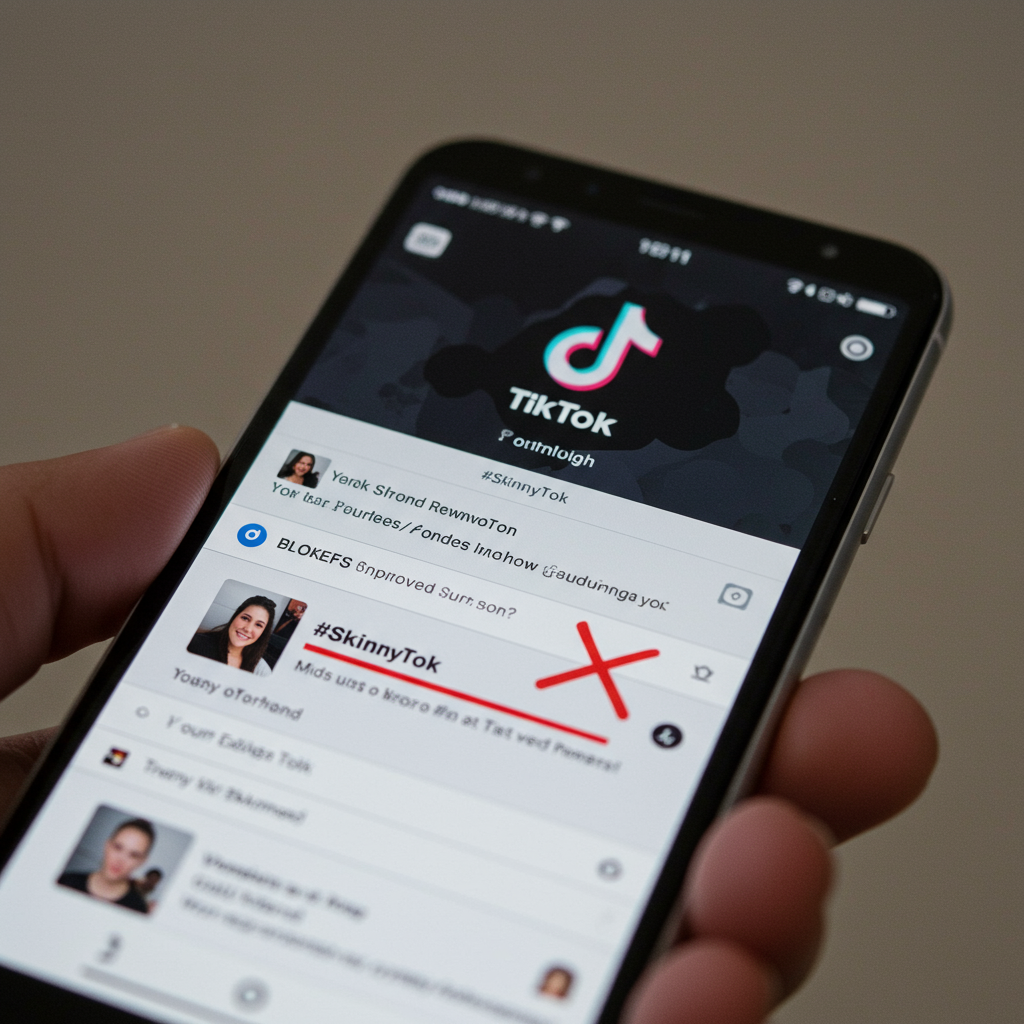TikTok Takes Action Against #SkinnyTok
TikTok has blocked searches for the controversial hashtag #skinnytok, a term critics say promoted and glorified extreme thinness and unhealthy weight loss behaviors. The platform’s decision comes amidst growing concern over the impact of such content on users, particularly vulnerable young people.
The hashtag #skinnytok had amassed over half a million associated posts, becoming a significant online subculture. Content shared under this umbrella often included videos showcasing workout routines, “what I eat in a day” features, and seemingly innocuous advice like low-calorie recipes. However, experts warned that this content, despite appearances, actively glorified thinness, vilified weight gain, and promoted disordered eating behaviors. Phrases like “Skinny is the outfit” were reportedly used, encouraging extreme weight loss methods.
Why the Hashtag Raised Alarms
The trend sparked significant alarm among mental health professionals, eating disorder charities, and policymakers globally. Experts in France, for example, highlighted how constant exposure to such content on social media can potentially push vulnerable young people towards developing eating disorders. Nutritionist Carole Copti noted the difficulty professionals face in counteracting the influence of spending hours daily on platforms like TikTok, stating that patients can become “completely indoctrinated.”
TikTok’s Response and Redirects
Confirming the action, TikTok stated it had “blocked search results for #skinnytok since it has become linked to unhealthy weight loss content.” Now, users attempting to search for the hashtag are redirected to valuable mental health support resources instead. This move aligns with TikTok’s stated commitment to regularly reviewing its safety measures to “address evolving risks” and providing health information within its search functions.
The Role of External Pressure and Advocacy
The blocking of the hashtag wasn’t solely an internal decision; it followed considerable external pressure and advocacy. Notably, French officials played a key role. In April 2025, France’s Minister of State for Digital Affairs, Clara Chappaz, reported the hashtag to both France’s digital watchdog and the European Commission. Minister Chappaz, alongside French nurse Charlyne Buigues, actively campaigned for the ban, with Buigues initiating a petition that gathered nearly 35,000 signatures. Minister Chappaz publicly celebrated TikTok’s action on June 1, 2025, calling it a “first collective victory.”
What Experts and Charities Say
Eating disorder charities largely welcomed TikTok’s move. Tom Quinn from the charity Beat acknowledged the “devastating” impact #skinnytok and similar content could have on individuals “struggling” or vulnerable to eating disorders. However, he also cautioned that users often find “workarounds” for content blocks. Quinn stressed the need for TikTok and other social media platforms to address other damaging content not specifically categorized under #skinnytok.
Looking Ahead: The Ongoing Challenge
This action is not the first time TikTok has addressed body image concerns on its platform. In March, it blocked viral “chubby filters” that distorted users’ appearances. While blocking the #skinnytok hashtag is a significant step in tackling content that promotes harmful body image standards and disordered eating, experts agree that addressing the root causes and pervasive nature of such content across social media remains an ongoing challenge. TikTok continues to restrict videos from teen accounts and emphasizes its ongoing efforts to provide health experts and information within its platform.
References
- https://www.bbc.com/news/articles/c4gr6q6256do
- https://ca.style.yahoo.com/tiktok-blocks-searches-extreme-thinness-112626038.html
- https://ca.news.yahoo.com/tiktok-blocks-skinnytok-due-extreme-015533344.html




